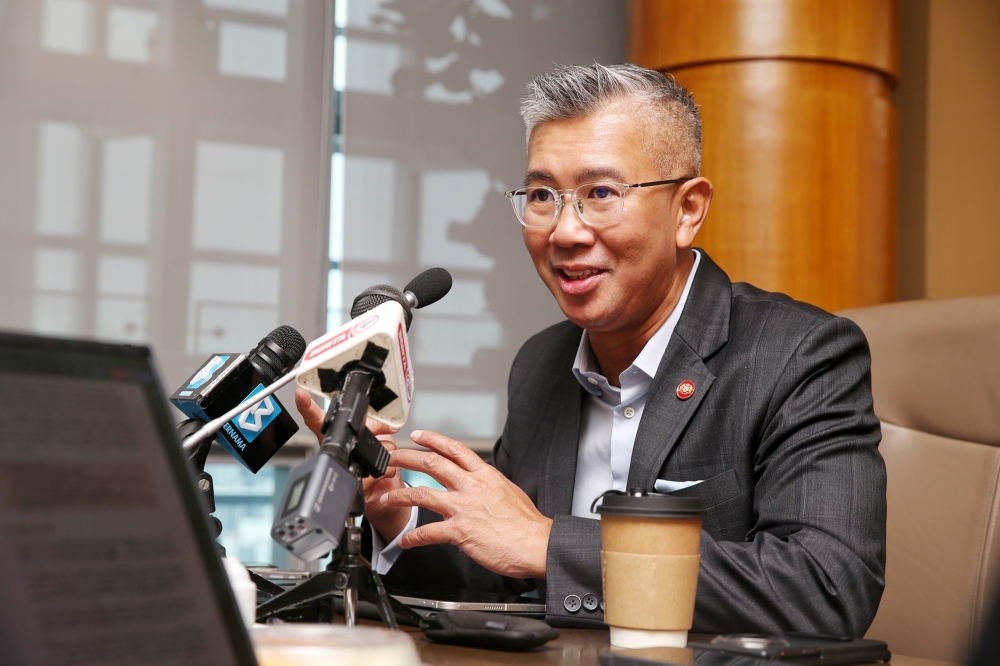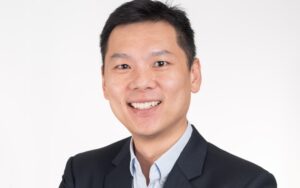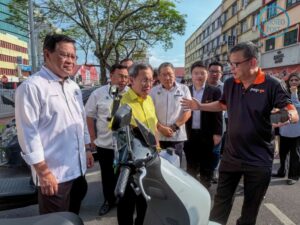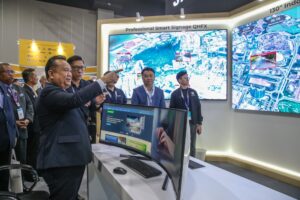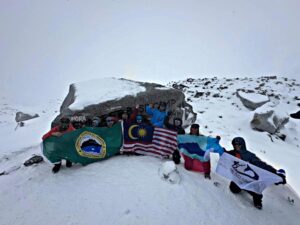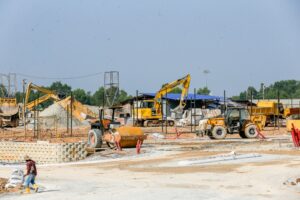KUALA LUMPUR, Oct 23 — Investment, Trade and Industry Minister Datuk Seri Tengku Zafrul Abdul Aziz said the government has been working diligently to strengthen Asean’s economic pillar amid global uncertainty, as regional cooperation becomes increasingly tied to issues of security and economic resilience.
Speaking to reporters during a group media interview at the ministry’s headquarters, Tengku Zafrul said Malaysia is helping to drive greater economic integration within the bloc, including through the first Regional Comprehensive Economic Partnership (RCEP) meeting since its launch.
He said the focus this year is on inclusivity, sustainability and ensuring that Asean’s growth also benefits small and medium enterprises (SMEs), while maintaining the region’s neutrality as a trusted and stable partner in global trade.
Q: Can you explain how the summit will benefit SMEs more? Because the perception is that it’s always for big companies here.
Tengku Zafrul: SMEs struggle to sell their products online. For example, you will require approval of documentation when you export and need to ensure the product complies with certain standards depending on what you’re exporting.
The more sensitive the product is, the more regulated it will be when you export it. We need a policy or regulation that is standardised. For example, if you qualify to sell the product here, you should be able to sell that product in Indonesia.
On the customs side, we’d make it seamless in terms of bureaucracy around that, especially for Asean exports within other Asean countries.
For big companies, they have the resources and an export division, but SMEs may only have 10 people. That’s why in Matrade we have Madani Digital Trade (MDT) to connect Malaysian customs.
But we need a single window for all customs, and we have to work with all the financial regulators so that banks can make cross-border payments more easily.
Because when you want to buy a product, sometimes you have issues with the amount and you need approval from the country.
Malaysia is slightly easier, but when you export and it’s time to pay, problems arise.
Big companies are able to navigate this, but for smaller firms, it doesn’t make sense to invest if you don’t have the right ecosystem for them to trade.
Q: How do you see Asean’s relationship with America? How can we benefit from that?
Tengku Zafrul: I can only share what’s happening on the economic side.
We are now in the final stages of finalising the Agreement Regarding Reciprocal Trade, or what we call ART. I think the US is talking to a few Asean countries to conclude that.
The hope is to have this signed by the two leaders during this summit. For Asean as well, we want to show America — especially the Trump administration — that we engage everyone, including the US.
More importantly, Asean can be a partner to all countries.
Take the semiconductor sector, for example. Many Asean countries are big players in the semiconductor industry and a very important part of its supply chain.
We need to show that we complement the US. It’s not that we’re taking over the supply chain, but that the supply chain here strengthens the US’ own.
Of course, there are concerns about economic security regarding Asean’s relationship with other markets. But we must ensure our enforcement capabilities are strong enough to address any concerns when it comes to economic and supply chain security.
Q: There are protests planned for Trump‘s arrival. What do you think about this?
Tengku Zafrul: I think it’ll be okay.
He just went to Scotland and wherever President Trump has visited, there are protests.
People have the right to voice their concerns. From my understanding, we’ve been told by many parties — regardless of political lines — that there will be protests, but we feel it won’t affect us.
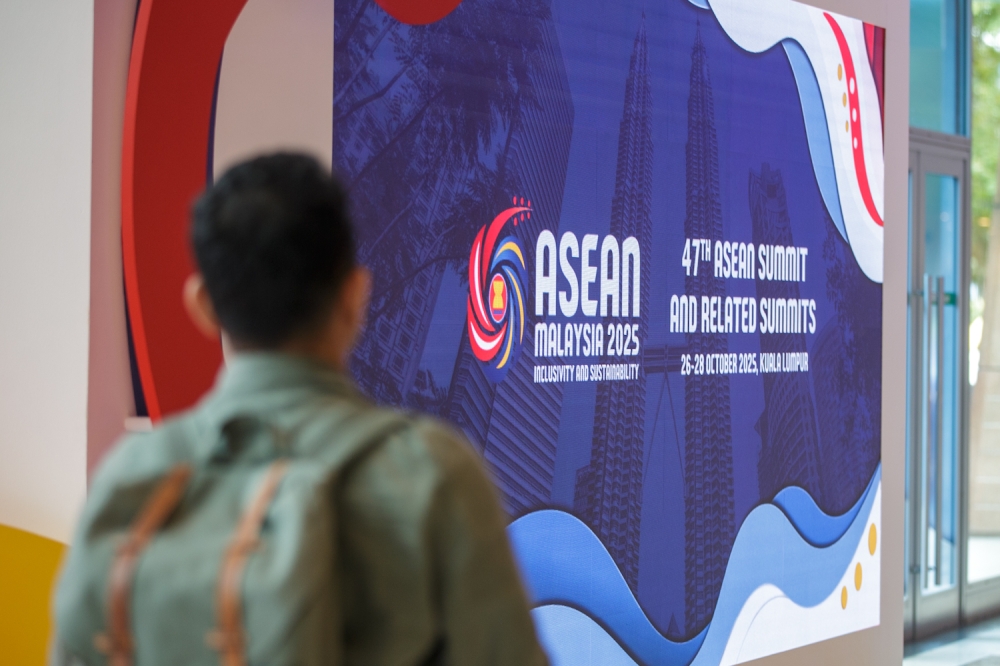
Logo of the 47th Asean Summit featuring the Asean Malaysia 2025 theme ‘Inclusivity and Sustainability’ at the International Media Centre, Kuala Lumpur today. — Picture by Raymond Manuel.
Q: We have fragmented strategies when it comes to REE (rare earth elements) with Vietnam, Indonesia and Malaysia. We want to sign bilateral agreements with the US and China as well. How can we collectively as Asean ensure we’re unified in this matter?
Tengku Zafrul: For REE, Malaysia has banned exports of raw REE. No more.
We want to make sure that when it comes to upstream, there’s no export.
Many other countries have done the same. Today, Indonesia still has that policy, which is similar to ours.
We want to develop our midstream and downstream capabilities.
Having said that, it’s not easy to develop those, given that only one major country is very advanced when it comes to downstream.
To some extent, downstream, we have Lynas.
When we look at other countries’ policies — not just for REE but for other sectors — we need to first protect our national interests.
In this case, for REE, ban the export of upstream. Develop the industry.
We also want to make sure that our neighbours share their challenges with us.
That’s what we do under the economic pillar — share technology, share supply chain security ideas.
When it comes to REE, I think most of us have a similar policy.
But the principle of Asean has always been that when we negotiate issues of national or economic security, it’s done bilaterally — between us and the other countries.
Q: With China as the most advanced nation and Lynas also operating in Indonesia and Texas, is Malaysia considering setting up a joint venture with US companies, with special incentives to come over?
Tengku Zafrul: For Malaysia, the government — especially Miti — is in charge of downstream activities.
We do not have restrictions on which country comes in to develop their industries here.
We encourage it, because if the spillover is positive — creating jobs, new opportunities and supporting Malaysian firms — then we support it.
Hopefully, they pay tax.
Khazanah, for example, is trying to court some of these Chinese companies to work together on downstream opportunities.
Lynas is already here, and since they are a private company, we will not stop them from exporting to their markets — Korea, Japan and the US.
At the end of the day, Malaysia remains neutral, but we want to use our competitive advantage because we have REE.
Instead of exporting raw materials, we want companies to come and invest here — and if possible, to find local partners.
By banning exports, they are forced to come here, regardless of country.
But there are only a few nations involved in downstream REE for now.
Q: When you said finding a local partner, can we make it compulsory? Because eventually we need to develop the technology ourselves.
Tengku Zafrul: We can, but it’s not policy.
We can deliberate this further with my Cabinet colleagues and engage the industries as well.
We’ve lifted many foreign ownership limits across sectors, but for strategic ones we still have foreign shareholding caps.
For example, in energy, power plants, and certain financial services.
The government can waive these limits depending on circumstances.
There are also shareholding limits in other sectors like cement.
So it’s not unprecedented, but I don’t think we have a clear policy yet for REE — although we strongly encourage local partnerships for now.
Q: There will be a CPTPP meeting in Australia next month. Can you share Malaysia’s plans or expectations?
Tengku Zafrul: Yes, in November there will be a CPTPP meeting in Australia, which currently chairs the agreement.
Last year it was Canada.
There are seven Asean countries that are members of CPTPP, if I’m not mistaken.
This is another platform where we can encourage CPTPP to engage other blocs.
Malaysia, of course, is in the CPTPP together with Indonesia, Singapore, Thailand, Vietnam and Brunei.
It’s an opportunity to strengthen Asean further because CPTPP sets the highest standards among free trade agreements.
We will discuss potential new memberships — a few countries have applied to join.
Even RCEP will be expanded, with four countries wanting to join.
These matters will be discussed during the leaders’ meeting.
For RCEP, the two co-chairs are Indonesia and Japan — Indonesia representing Asean and Japan representing the Plus Five.
The summit, which will take place from October 26 to 28, is expected to draw several world leaders, including India’s Narendra Modi and China‘s Premier Li Qiang.
In preparation for the event, temporary and phased traffic diversions will begin on October 23 across several key areas to facilitate the summit and its related meetings at the Kuala Lumpur Convention Centre.
